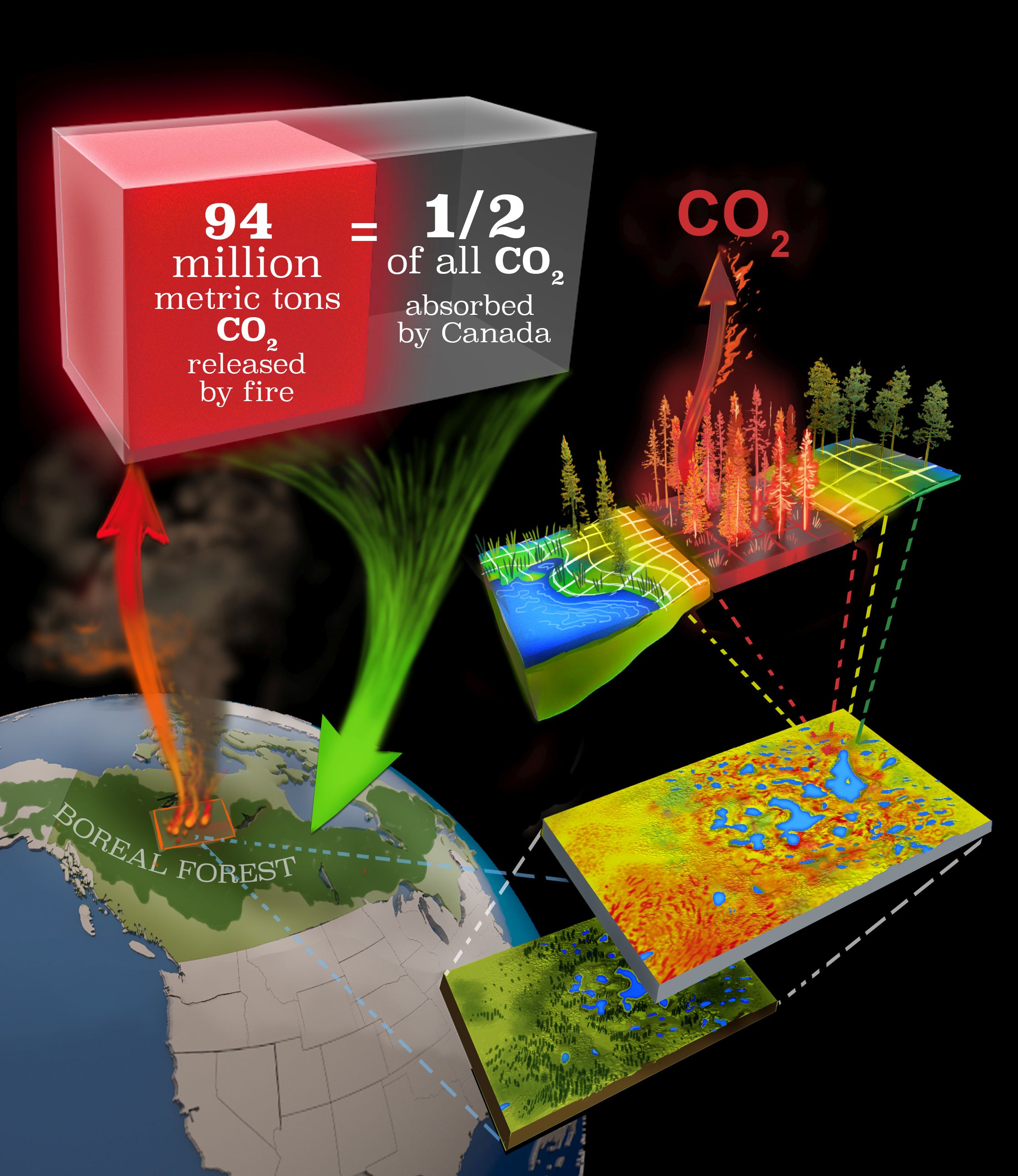Ecoss scientists estimate carbon emissions from Canada’s boreal forests
The boreal forest is home to one-third of the Earth’s forest cover and stores 40 percent of the planet’s terrestrial carbon. North America’s boreal forest alone, which spans the northern portion of the continent from Alaska all the way to Newfoundland, covers an astounding 1.5 billion acres—more than 2.3 million […]

